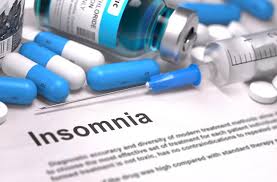- Home
- Editorial
- News
- Practice Guidelines
- Anesthesiology Guidelines
- Cancer Guidelines
- Cardiac Sciences Guidelines
- Critical Care Guidelines
- Dentistry Guidelines
- Dermatology Guidelines
- Diabetes and Endo Guidelines
- Diagnostics Guidelines
- ENT Guidelines
- Featured Practice Guidelines
- Gastroenterology Guidelines
- Geriatrics Guidelines
- Medicine Guidelines
- Nephrology Guidelines
- Neurosciences Guidelines
- Obs and Gynae Guidelines
- Ophthalmology Guidelines
- Orthopaedics Guidelines
- Paediatrics Guidelines
- Psychiatry Guidelines
- Pulmonology Guidelines
- Radiology Guidelines
- Surgery Guidelines
- Urology Guidelines
Insomnia may be a cause not effect of depression

Insomnia is usually considered to be a symptom stress, a bad diet a sedentary lifestyle or depression.But recently a Japanese study was conducted to establish a link between insomnia and depression. According to findings of study it is possible that insomnia itself is a cause of many of the conditions that it is seen as a symptom of including Depression. The authors of study have published their findings in De Gruyter's open access journal Open Medicine entitled 'Insomnia and depression: Japanese hospital workers questionnaire survey' .
Depression is a hidden killer. It is a condition that affects people all around the world. Suicide is one of the leading causes of death in Japan. The yearly financial cost to the Japanese economy of depression and suicide is estimated by UPI to be USD 4.1 billion. Middle-aged males, one of the groups that was found to suffer the highest rates of insomnia are also the likeliest to commit suicide.
In March of 2011, over 7000 hospital staff in ten hospitals in the district of Rosai were given a self-administered anonymous questionnaire. The questions included information about the respondent's gender, age, and medical profession, as well as questions about their sleeping history two weeks prior to responding to the survey, as well as detailing their overtime work, and their history of disease and chronic pain. It also asked them to assess their own feelings of depression and fatigue.
The results were alarming. Thirteen percent of men, and nineteen percent of women suffered from insomnia, and the medical profession with the highest rate of insomnia were nurses at twenty percent. For comparison, about ten percent of Americans suffer from chronic insomnia.
Chronic insomnia can lead to depression, and a better understanding of the link between the two conditions could be used to improve treatment, and prevent the condition from worsening while strengthening the world economy. The hope is a survey will be developed for healthcare professionals (and other high-stress professions) that can identify insomnia before it becomes a problem.
For more details click on the link: Open Medicine, 2017; 12 (1) DOI: 10.1515/med-2017-0056
blood flowChronic insomniachronic paincorrelatesdepressionfatigueinsomniaJapanese hospitaljournal Open Medicine
Source : Press ReleaseNext Story
NO DATA FOUND

Disclaimer: This site is primarily intended for healthcare professionals. Any content/information on this website does not replace the advice of medical and/or health professionals and should not be construed as medical/diagnostic advice/endorsement or prescription. Use of this site is subject to our terms of use, privacy policy, advertisement policy. © 2020 Minerva Medical Treatment Pvt Ltd